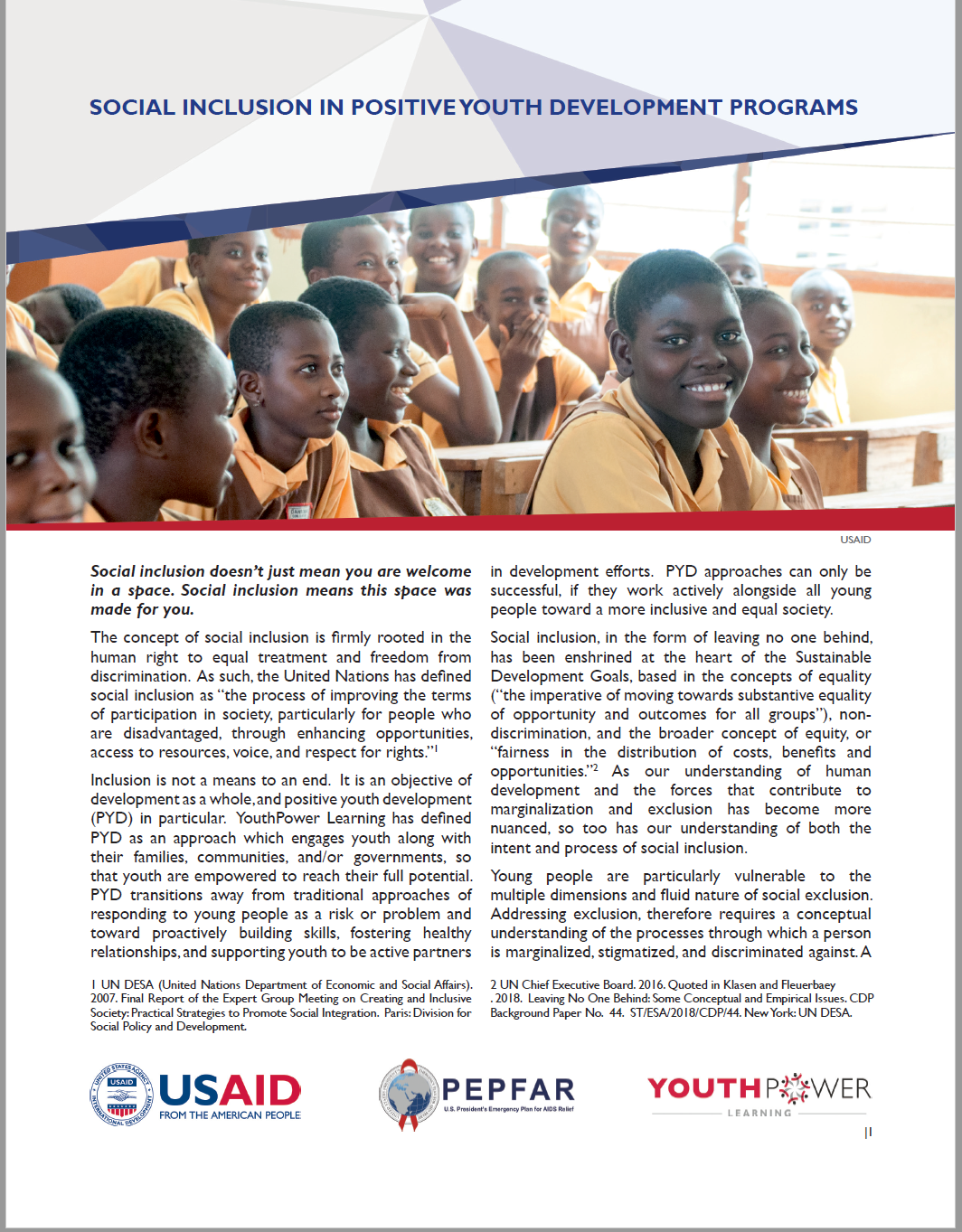 The concept of social inclusion is firmly rooted in the human right to equal treatment and freedom from discrimination. Inclusion is not a means to an end. It is an objective of development as a whole, and positive youth development (PYD) in particular. YouthPower Learning has defined PYD as an approach which engages youth along with their families, communities, and/or governments, so that youth are empowered to reach their full potential. PYD transitions away from traditional approaches of responding to young people as a risk or problem and toward proactively building skills, fostering healthy relationships, and supporting youth to be active partners in development efforts. PYD approaches can only be successful, if they work actively alongside all young people toward a more inclusive and equal society.
The concept of social inclusion is firmly rooted in the human right to equal treatment and freedom from discrimination. Inclusion is not a means to an end. It is an objective of development as a whole, and positive youth development (PYD) in particular. YouthPower Learning has defined PYD as an approach which engages youth along with their families, communities, and/or governments, so that youth are empowered to reach their full potential. PYD transitions away from traditional approaches of responding to young people as a risk or problem and toward proactively building skills, fostering healthy relationships, and supporting youth to be active partners in development efforts. PYD approaches can only be successful, if they work actively alongside all young people toward a more inclusive and equal society.
In particular, incorporating social inclusion as part of PYD programming means you must understand how a person’s intersecting identities can affect access to and participation in the world. Amplified disadvantages stemming from gender, ethnicity, age, socioeconomic class, physical abilities, sexual orientation, and location are especially powerful in creating barriers to social inclusion, economic participation, and political voice. Creating truly inclusive PYD programs requires going beyond practicing a welcoming attitude in implementing outreach or community engagement.
This brief covers the importance of social inclusion for positive youth development and key considerations for understanding, tracking, measuring, and evaluating the impact of social inclusion initiatives.
